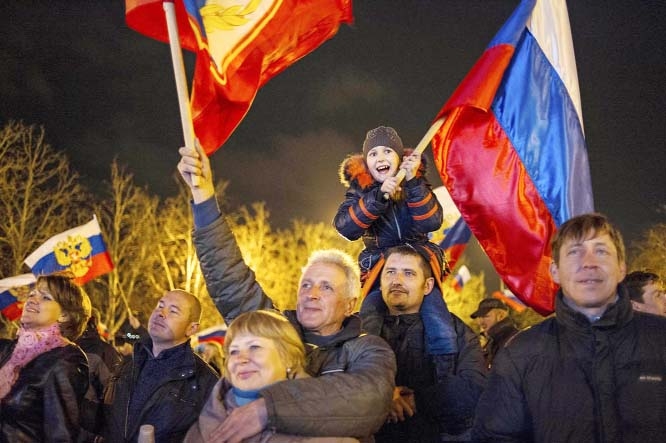
Reuters, Berlin :
Russia’s military seizure of Crimea and preparations for a possible annexation of the southern Ukrainian province have revived fears, calculations and reflexes that had been rusting away since the fall of the Berlin Wall in 1989.
Whether the crisis triggered by President Vladimir Putin’s attempt to prevent Ukraine, a strategic former Soviet republic, turning to the West, becomes a turning point in international relations like the 2001 Al Qaeda attacks on the United States or the 1962 Cuban missile crisis, is not yet certain. There are still some steps to play out.
But policymakers and strategic analysts are thinking through the consequences of a potentially prolonged East-West tug-of-war. And states in the middle such as Germany and Poland are starting to weigh uncomfortable adjustments to their policy.
The standoff is already posing tricky questions about the balance between sanctions and diplomacy, setting loyalty tests for allies and raising the risk of spillover to other conflicts and of possible proxy wars.
“Welcome to Cold War Two,” Russian analyst Dmitri Trenin of the Carnegie Foundation for International Peace declared in an article for Foreign Policy magazine.
“The recent developments have effectively put an end to the interregnum of partnership and cooperation between the West and Russia that generally prevailed in the quarter-century after the Cold War,” he said.
Trenin is not alone in seeing the struggle for Ukraine as the biggest game-changer in European security since the collapse of the Soviet Union in 1991.
While no one imagines the superpowers returning to a hair-trigger nuclear confrontation or a bloc-against-bloc military buildup – for starters, Russia no longer has a bloc – the knock-on implications for other security problems, and for the world economy, are significant.

